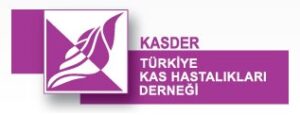 Those with Duchenne muscular dystrophy may face difficulties such as a limited social life, dependency on home care, and trouble accessing the same opportunities as able-bodied peers. These challenges have been found to have a negative impact on the psychological wellbeing of individuals with Duchenne. Accepting and coping with this kind of neuromuscular disability and the hardships that come with it may often lead to anxiety and depression.
Those with Duchenne muscular dystrophy may face difficulties such as a limited social life, dependency on home care, and trouble accessing the same opportunities as able-bodied peers. These challenges have been found to have a negative impact on the psychological wellbeing of individuals with Duchenne. Accepting and coping with this kind of neuromuscular disability and the hardships that come with it may often lead to anxiety and depression.
The Neuromuscular Disorders Association of Turkey (KASDER) recognized this problem and responded by setting up a free online psychological support system for Turkish-speaking individuals with Duchenne around the world. Since then, more than 500 support sessions have been run for 47 Duchenne patients and their relatives. The virtual and complimentary nature of the program means that patients and their families are able to take part in individual and group sessions from their home, ensuring that transportation issues, public health risks, and economic status do not prevent them from receiving the psychological support they need.
As second-time recipients of the STRIVE grant, KASDER plans to expand the project to provide more than 1500 psychological support sessions annually to 50 people living with Duchenne. They will also train an additional 30 psychologists on how to best support people with Duchenne. Both patients and psychologists will be able to take part in the sessions through their personal smart phones via zoom, keeping the program accessible and supportive. We look forward to hearing about how this valuable initiative is enabling more families to live fuller lives.